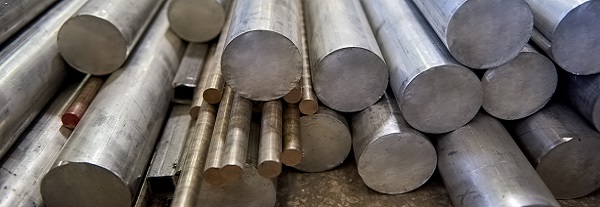
When you think of words that describe metal, ‘strong’ is probably one of the first that comes to mind. Indeed, the raw strength of most metals is why they’re so commonly used in structural engineering - they rarely buckle or break apart, unless under an extreme amount of stress, and can be relied on to stay strong for decades or longer.
Sheet metal is one of the few exceptions. It's intentionally thin, usually around 0.5 mm to 6 mm in thickness, which makes it much weaker than other metal pieces. This flexibility allows it to be shaped, cut, and used for various applications.
If you're thinking of using metal sheets in your project, you might be wondering whether bending them into a different shape could affect their strength. Well, that’s what we’re here to answer today!
At Clickmetal, we're proud to be among the UK's top specialists in premium stainless steel, mild steel, galvanised steel, brass and aluminium sheet metal. In this guide, we'll explore how bending affects the strength of sheet metal, why it matters, and what other factors play a role in the process.
Can Bending Sheet Metal Strengthen It?
Bending sheet metal doesn’t make it stronger in terms of its tensile strength, yield strength, or other mechanical properties - it’s still the same metal, after all! However, bending it can affect its structural integrity:
- Bending can increase the stiffness of a sheet metal component. When you bend a flat sheet into a three-dimensional shape, it can become more rigid and less prone to flexing or deforming under load. The extent of this effect depends on the geometry and design of the bend.
- Bending can redistribute stress within a sheet metal part. By shaping the metal, you can alter how forces are transmitted through the component, potentially making it more suitable for its intended use.
- Depending on how the sheet metal is bent, it may become more or less susceptible to buckling, which is a form of structural failure. Properly designed bends can help prevent or mitigate buckling in specific applications.
- The process of bending can be used to achieve specific shapes that are required for certain applications. For example, bending sheet metal into a curved shape can improve its ability to resist certain types of loads.
Can Bending Sheet Metal Weaken It?
Bending sheet metal is somewhat of an art, and doing it the wrong way can actually end up weakening the metal instead of strengthening it. This is because bending metal introduces stress and strain into the material, which can affect its structural integrity. Here are some of the things that can end up weakening your metal:
- There are several bending methods, like air bending, coining, and edge bending. Some of these introduce more stress into the material, potentially causing it to lose its integrity. Choosing the wrong method for your specific application could weaken the metal's strength.
- The radius of the bend is a critical factor. A smaller bend radius, especially in thicker or harder metals, can increase the risk of material failure, such as cracking or deformation. It's essential to use appropriate bend radii for the specific material and thickness.
- Thicker sheets of metal are generally more prone to weakening when bent compared to thinner sheets. Thicker materials require more force to bend, which can lead to greater deformation and stress.
- Repeatedly bending the same piece of sheet metal in the same location can lead to cumulative weakening due to fatigue.
What Other Factors Affect the Strength of Sheet Metal?
Sheet metal strength is influenced by various factors beyond how it bends. Here are some of the key things to consider:
- Different metals and alloys have their own levels of tensile strength, yield strength, and hardness. Among the common sheet metal options, aluminium and stainless steel are known for their impressive strength.
- Thicker sheet metal is generally stronger than thinner sheets; doubling the thickness usually doubles the strength. However, keep in mind that thicker metals require more force to bend, which can result in greater deformation and stress. Thinner sheets may be a better choice if you plan on bending them.
- It goes without saying, but the higher quality the metal, the stronger it is. Low-quality metals might have fractures or defects that can crack under enough pressure.
- Depending on the type of metal, different grades offer various levels of tensile strength, yield strength, and corrosion resistance. This makes a difference in how suitable they are for different projects.
Premium Sheet Metal, Custom-Cut for Your Project
Looking for sheet metal for your project? You're in the right place.
At Clickmetal, we supply high-quality aluminium, brass and steel sheets cut to your exact length requirements. We offer a wide range of grades, including:
- Aluminium: 1050H14, 5083'O', 5251H22, and 6082T6
- Stainless steel: 304
- Mild steel: CR4
- Galvanised steel: DX51DZ+275MAC
- Brass: CZ108
All our sheets meet rigorous quality standards and are expertly cut in our dedicated facility. They also come with a removable PVC film on one side to keep them safe during handling and transport.
We aim to process your order within 3-5 working days from the moment we receive it. Your order will then be sent to you through a 24-hour courier service on the next working day, so you can get started on your project in no time.
Shop our full range of aluminium and steel metal online!
